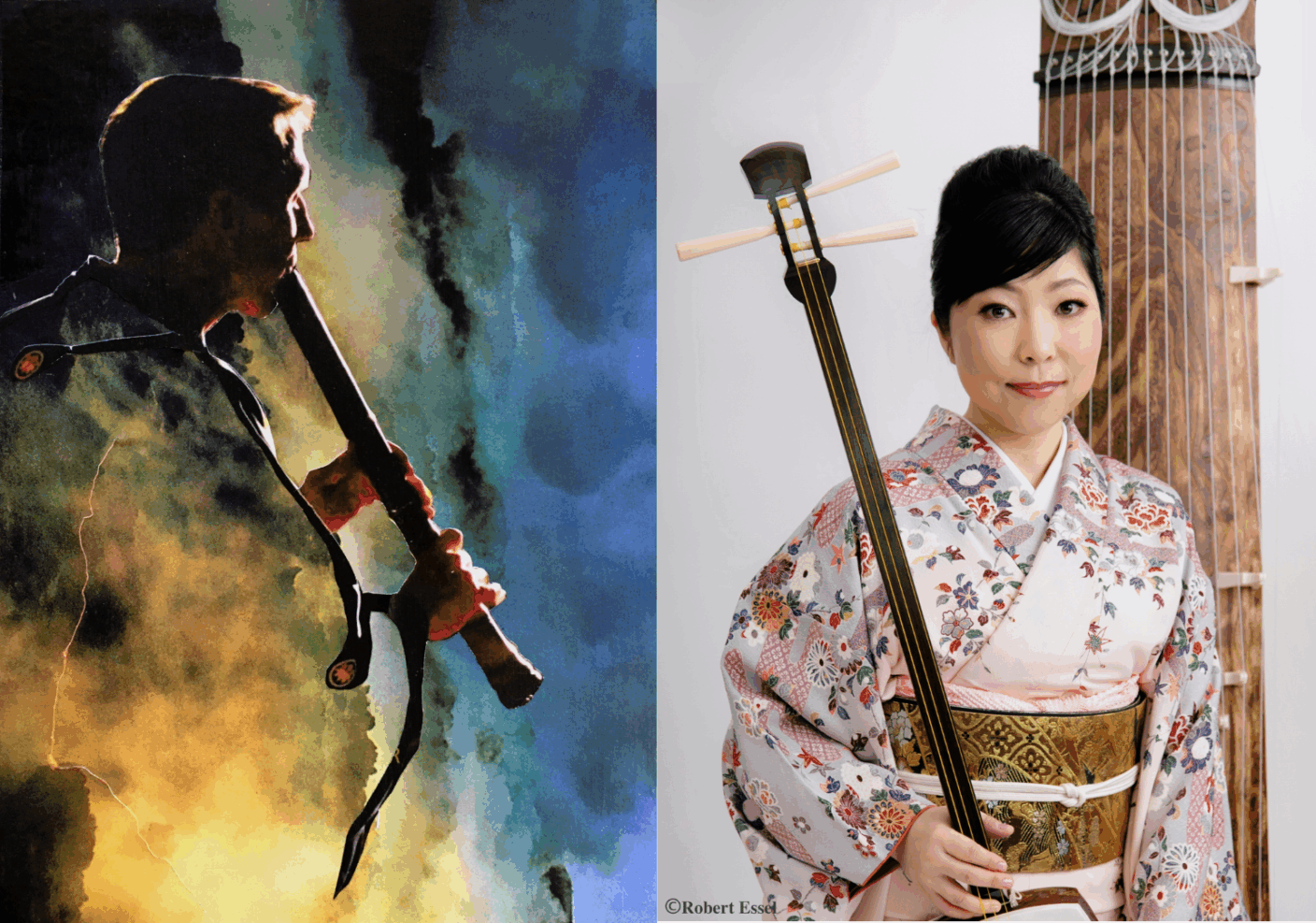Artists To Showcase Traditional Japanese Instruments In ‘Silk And Bamboo’ Concert

Classical and contemporary Japanese music will be featured during a free concert titled “Silk and Bamboo” on Wednesday at 7 p.m. at the Black Box Theater in the Liberal Arts and Arts and Humanities building.
David Kansuke Wheeler and Yoko Reikano Kimura will perform works for three traditional Japanese instruments: shakuhachi, an end-blown bamboo flute; koto, a 13-string zither; and shamisen, a three-stringed plucked lute.
Dr. Martin Regan, professor in the Performance Studies program, is a longtime collaborator with both artists, and said he is excited for them to return to Texas A&M since their last performance in 2019.
Through music and narration, audience members will learn about these Japanese instruments that were imported from China as early as the 8th century, Regan said. They will view projections of photographs featuring places mentioned in the music alongside English translations of the Japanese lyrics.
“I hope that for those hearing Japanese instruments for the first time, they are drawn in by the beautiful timbre and appreciate the rich history that accompanies the repertoire,” Regan said. “It’s one thing to read about Japanese instruments in a textbook and listen to recordings. It’s another to have students engage with performers one-on-one and hear the instruments live.”
Wheeler will play the shakuhachi, which is the “most globalized of Japanese instruments,” Regan said. It was used as a tool by mendicant monks as part of their spiritual practice as they journeyed the countryside, he said.
Wheeler lives in Boulder, Colorado, but spent 20 years in Japan. He first learned to play the shakuhachi during his junior year abroad in Tokyo in 1977, where he learned from shakuhachi master Junsuke Kawase III. Wheeler later returned to Japan in 1981 and received his master’s degree in musicology.
“The shakuhachi is the simplest of instruments,” Wheeler said. “It’s constructed out of a pipe of bamboo whose interior nodes have been removed. One end is cut off at an angle to create a blowing edge and five finger holes are cut in the pipe. You hold it vertically, like a recorder, and blow across that edge to create a sound, like blowing on a bottle end. No tricks!”
Having studied and taught the shakuhachi for more than four decades, Wheeler said he has found that anyone can deeply enjoy this music.
“Even if they are not a trained musician, or a scholar of Japanese culture and performing arts, all you need is a little enthusiastic curiosity towards new musical experiences,” Wheeler said.
“I have always been struck not by the differences between, say, Japanese and Western music, but rather by their similarities; the use of melody and phrase, tension and resolution, changes in tempo and volume, and the inclusion of poetry and song in instrumental music.”
Kimura will sing and play the koto, a 13-string zither made of pawlonia wood with moveable bridges and silk strings, Regan said. Kimura will also play the shamisen, a three-stringed plucked lute, which became popular during the Edo Period (1603-1868) in Japan, he said. It was traditionally used by men who performed in the theater as well as women entertainers known as
geishas.
Kimura was born in Saitama, Japan. She learned to play the piano at age 4. At 14, she was studying alongside koto masters Yukano Inoue and Kono Kameyama, who was a student of the late koto/shamisen master Kin’ichi Nakanoshima. She graduated from the Tokyo University of the Arts and Music.
In 2010 she moved to the United States and lives in Queens, New York. She and her husband, cellist Hikaru Tamaki, perform internationally as Duo YUMENO.
Kimura said she is happy to share the sound of Japanese instruments through live performance.
“It always means a lot for me to perform my favorite koto and shamisen music for listeners around the world,” she said. “But I am most grateful when the audience finds universal expressions or feelings that they can relate to.”